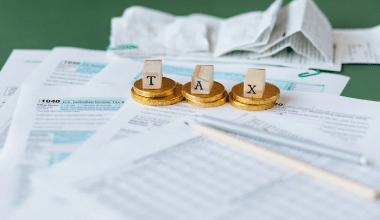Everyone desires a lower tax burden. Living in a state with no income tax might be one method to achieve that. Seven states do not impose any state income taxes: Alaska, Florida, Nevada, South Dakota, Tennessee, Texas, and Wyoming. Washington State taxes capital gains and investment income, but only for a select group of wealthy incomes. However, to gather full knowledge of states that are income tax-free in the USA and for retirement, this post is for you.
Sit tight and enjoy your reading!!!
Income Tax-Free States
Living in a state without a personal income tax essentially means that you get to keep a little more of your earnings. And it can be tempting to pack your bags and get a one-way ticket to Washington if you currently reside in a state with high personal income tax rates, such as California. Moving to a state without an income tax, thus, does not automatically exempt you from paying additional taxes. Even if your income qualifies you to file a federal return, you must still do it by the tax filing date.
The Benefits and Drawbacks of Residing in a Jurisdiction Without Income Taxes
#1. Retirement Advantages
Whether it be on 401(k) payouts, pensions, or Social Security benefits, the majority of people can anticipate paying at least some taxes during retirement. The ability to avoid paying state taxes on retirement plans is often available to inhabitants of states without a personal income tax, which can mean extra money for your golden years.
Avoiding extra taxes can be a wonderful retirement perk, but you should carefully compare the tax advantages of moving with other crucial financial (and personal) factors. For instance, some states have fewer public transportation options, less inexpensive health care, greater real estate taxes, or inadequate support for senior care services.
#2. Establishing a Residence
To profit from living in a state that does not impose income taxes, you must complete a number of requirements. The most important one is establishing domicile, or the decision to call a state your permanent residence. Rules and requirements differ from state to state, but generally speaking, in order to start qualifying as a permanent resident, you must live somewhere for at least 183 days out of the year. States also carry out residence audits, therefore you need the evidence.
For tax reasons, a person who resides in one state but travels to another frequently may be regarded as a permanent resident of one state and a “statutory resident” of the other. This implies that they might have to pay taxes on their earned income in both states.
#3. Price and Standard of Living
The most important statistic to calculate might be your cost of living. You must include the costs for accommodation, food, salaries, health care, and lifestyle. The extra expense necessary to live comfortably in another state may outweigh the savings you realize on state taxes.
Keep your job in mind as well. It’s now simpler than ever to consider transferring without jeopardizing your job security thanks to remote work. However, if you were to reside in a state with few work prospects in your specific industry and anything were to disrupt your employment, you might have trouble finding a new position.
Income Tax-Free States in the USA
Personal income is not taxed in nine states in the United States. When you live in a state where there is no income tax, less money is deducted from your paycheck each month, and when tax season rolls around, you only need to file a federal return. All citizens in the USA avoid paying income tax in the nine states that are not tax-free. New Hampshire is included in this list although though it levies no tax on earned wages, it does impose a flat income tax on gains from investments.
#1. Alaska
There are no sales or income taxes in Alaska. The lowest of all 50 states, Alaskans pay just 5.10% of their personal income in state and local taxes, which includes income, property, sales, and excise taxes.
The Alaska Permanent Fund Corp. distributes an annual payment to every resident of Alaska, which is made up of revenue and investment earnings from mineral lease rentals and royalties. The dividend distribution per citizen for 2021 was $1,114. However, Alaska has a high cost of living, largely because of its remoteness. On the list of the “Best States to Live In,” published by U.S. News & World Report, the state scores 45 overall and 47 out of 50 for affordability.
#2. Nevada
Nevada heavily depends on the income generated by hefty sales taxes on everything from food to clothing, sin taxes on alcohol and gambling, as well as taxes on casinos and lodging facilities. As a result, Nevadans have the second-highest state-imposed overall tax burden of 8.23% of personal income. When compared to all states, it still comes in at a fairly respectable 22 out of 50.
However, due to its high housing and living expenses, Nevada ranks 41st out of 50 states in terms of affordability. The state is ranked 37th on the list of the “Best States to Live In” by U.S. News & World Report. Nevada spent $9,344 per student on education in 2019, which was the fourth-lowest amount in the country’s western region. The ASCE rated Nevada’s infrastructure a C grade in 2018, one year early.
#3. South Dakota
Like many states without an income tax, South Dakota makes money through other taxes, such as those on alcohol and cigarettes. The Black Hills, home of the Lakota Sioux, has one of the highest sales taxes in the nation as well as higher than normal property tax rates. According to information from The Atlantic, South Dakota’s status as the home of several significant businesses in the credit card sector, along with higher rates for property and sales taxes, contributes to the state’s people not paying income tax.
According to WalletHub, South Dakotans pay just 7.37% of their personal income in taxes, placing the state seventh in terms of overall taxation. On the U.S. News & World Report “Best States” lists, the state is ranked 15th overall and 14th in terms of cost.
#4. Florida
Warm temperatures and a sizable retiree population are two characteristics of this well-liked snowbird state. Florida’s sales and excise taxes are higher than the national average, but the state’s overall tax rate is only 6.97%, which ranks it sixth lowest in the nation. Florida’s higher-than-average housing expenses contribute to its low affordability ranking of 31. Nevertheless, Florida ranked 10th among the “Best States to Live In” according to U.S. News & World Report.
#5. Texas
The Lone Star State chose to prohibit personal income taxes in the state constitution because it detests them so much. Texas relies on revenue from sales and excise taxes to pay for infrastructure and services since they must be funded in some way. In some places, the sales tax can be as high as 82.25 percent. A total tax burden of 8.19% of personal income is the end result, with property taxes being greater than in most states. However, Texans’ overall tax burden is still among the lowest in the country, with the state coming in at number 19.
#6. Washington
Because there is no state-mandated corporate income tax in Washington (high-income earners are still subject to state capital gains tax, though), the state has a young population with only 15.9% of its citizens over 65 and a large number of significant employers. Gasoline is more expensive in Washington than in the majority of other states, and residents do pay hefty sales and excise taxes. With a total tax burden of 8.34%, the state ranks 26 out of 50.
#7. New Hampshire
Earned income is not subject to taxation in New Hampshire, although dividends and interest are. The investment income tax will be completely eliminated by 2027 after the New Hampshire Senate approved legislation to phase it out over five years at a rate of 1% annually. The state does not have a state sales tax, but it does impose excise taxes, notably taxes on alcohol, and it has the third-highest average property tax rate in the US (1.86% of property values).
#8. Tennessee
Prior to 2016, Tennessee taxed investment income, including the majority of dividends and interest, but not wages. A plan to reduce taxes on unearned income by 1% per year until the levy was repealed at the start of 2021 was included in legislation that was passed in 2016. Tennessee has high sales taxes and the highest beer tax of any state in the union at $1.29 per gallon to make up for the shortfall.
#9. Wyoming
Wyoming is the second least densely inhabited state, with an estimated six persons per square mile, trailing only Alaska, which has around one person per square mile. Residents enjoy low sales tax rates, no personal or corporate state income taxes, and no retirement income taxes. The state is third least taxed, with a total tax burden of 6.14%, which includes income, sales, excise, and property taxes.
Retirement Income Tax-Free States
For taxation reasons, retirement withdrawals from 401(k) plans or IRAs are regarded as income. Thankfully, certain states don’t impose taxes on any form of retirement income, including Alaska, Florida, Nevada, South Dakota, Tennessee, Texas, Washington, and Wyoming. However, four states, Illinois, Iowa, Mississippi, and Pennsylvania, do not tax retirement income in addition to the nine aforementioned states with no income tax at all. What you need to know about each additional retirement income tax-free states are listed below.
#1. Illinois
All retirement income in Illinois is exempt from paying the 4.95 percent flat state income tax. Pension payments and dividends from 401(k) and IRA plans are included in this. Also, payments made by Social Security are also excluded.
#2. Iowa
A new law that was signed in 2022 would prevent Iowa adults over the age of 55 from paying taxes on their retirement income starting in 2023. A flat rate of 3.9 percent will be adopted in Iowa in 2026, after which the state’s income tax rates will vary from 4.4 percent to 6 percent in 2023.
#3. Mississippi
Retirement income is not subject to state income tax in Mississippi as long as you’ve complied with the plan’s rules, which range from 0% to 5%. This implies that early withdrawals from retirement plans could not be considered retirement income and might incur tax and penalty charges.
#4. Pennsylvania
Pennsylvania levies a flat 3.07 percent personal income tax. As long as the conditions of the plan are met, Pennsylvania is one of the retirement income tax-free states in the USA. Before reaching the required age (59 12), withdrawals from retirement plans like IRAs may incur taxes.
What Is the Most Tax-Friendly State?
According to MoneyGeek’s analysis, Wyoming is the state in America with the lowest state taxes, followed by Nevada, Tennessee, Florida, and Alaska.
Which State Has the Lowest Income Tax?
By dividing the entire amount of individual taxes paid by the total amount of personal income, Alaska had the lowest average overall tax burden, which was 5.4%, followed by Tennessee (6.3%), New Hampshire (6.4%), Wyoming (6.6%), and Florida (6.7%).
Which City Has Lowest Tax in Us?
The following cities have the lowest tax rates: Honolulu, Birmingham, Montgomery, Denver, and Cheyenne
How Much Is Income Tax in Texas?
Individual income taxes are not levied in Texas. Texas levies a gross receipts tax but not an income tax on corporations. Texas has a state sales tax of 6.25 percent, a maximum local sales tax of 2 percent, and an average state and local sales tax of 8.20 percent.
How Does Florida Have No Taxes?
Florida is one of seven states in the US without an income tax, which contributes to the state’s low tax burden. Although such a tax is forbidden by the state constitution, Floridians are nonetheless required to pay federal income taxes.
What City Has the Most Expensive Taxes in USA?
Bridgeport, Connecticut. Bridgeport, one of the wealthiest cities in the country, has the highest average tax rate in the country. Rich taxpayers who make more than $150,000 annually are liable for up to 22% in state and local taxes.
Related Posts
- SALES TAX FREE STATES IN UNITED STATES IN 2023
- What States Have No Income Tax: What You Should Know
- BEST STATES TO BUY A CAR IN 2023: Updated!
- WHAT IS AGI: Meaning, How to Calculate It & Important Tips to Know






